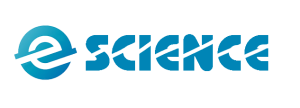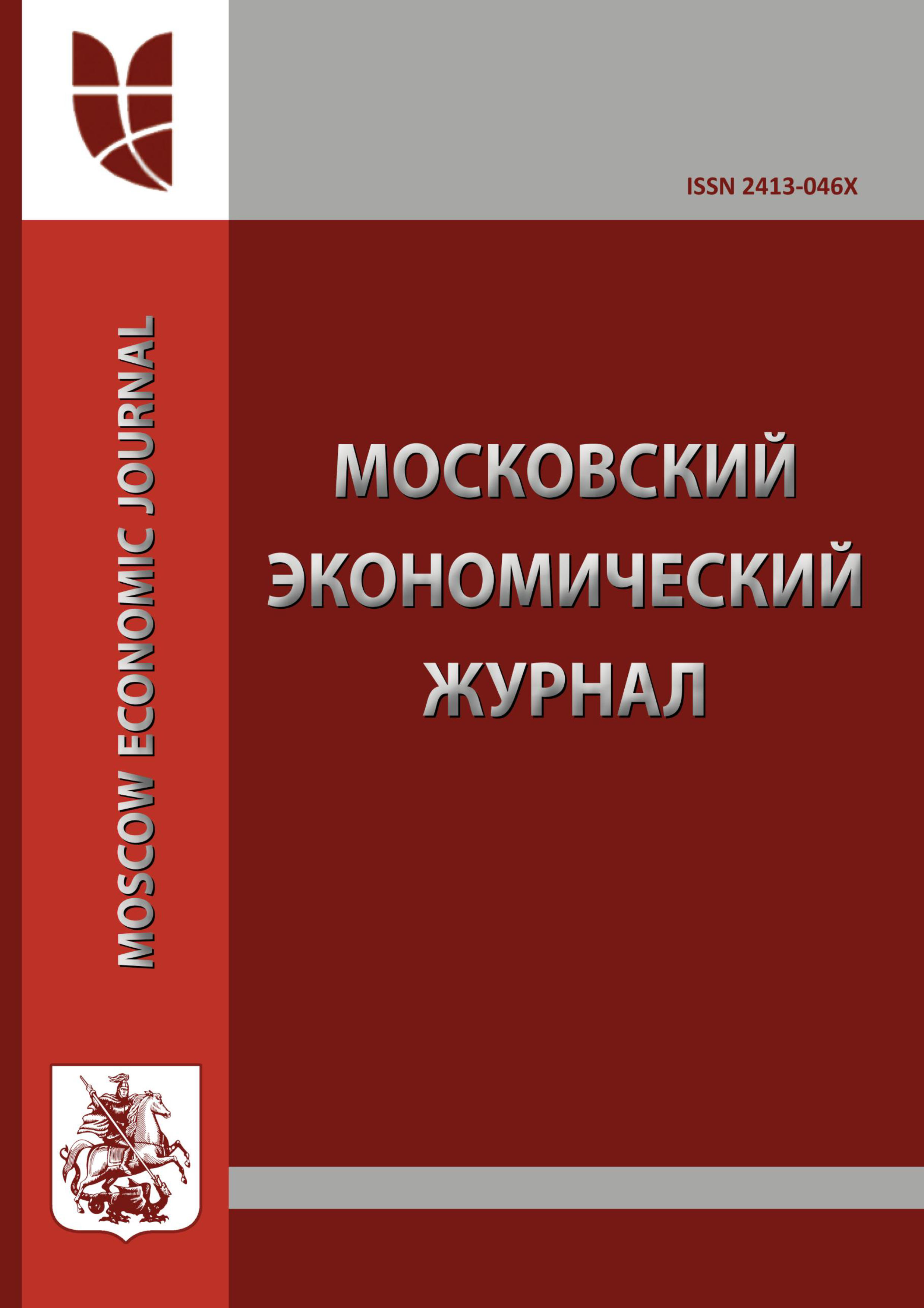Russian Federation
Objective: a systematic analytical study on the current state, structure, goals and technology competency and adaptive learning, the implementation of appropriate training of IT-rich systems and environments, focused on a reduced period of time inclusion of knowledge in business processes of companies (enterprises), as well as the development of the system effective evaluation criteria (metrics). The methods of systematic and cognitive analysis, situational modeling and adaptive approach, intelligent and multi-agent systems. The question of self-organization of these systems, taking into account the labor market needs (competences, skills specialists). Results: The quality of education should be considered not only in terms of conformity of the GEF, the requirements of educational institutions, but also from the point of view of the consumer market, customer satisfaction measures, cost characteristics. Specific outcomes, educational goals must be considered in terms of competencies, key skills - communication, technology, creativity, entrepreneurship, and others. It is necessary to create an adaptive software-based competency approach, training options, the dynamic control of the stages of learning. The need for qualitative analysis, the quality of education needs prognosis, and monitoring of the learning process. The standardization of the learning process is necessary for the distribution of responsibility «in the clouds» and automated self-service, in the long term-self. This is the ultimate goal of adaptive learning. We need to develop an adaptive mechanism that promotes self-development not only of students but also training. It is necessary to analyze the profitability of the use of intra-resources of the educational system, the level of expectations of the training, to conduct situational simulations on different models of training and assessment of its quality. Looking for relevant assessment of external and internal environment (macro-high school opportunities, consumers).
competences, competence-based approach, adaptive training, IT, self-organization, the training system, the training environment, quality of education, efficiency
1. Arutyunyan A.E. SISTEMNO-INFORMACIONNYY ANALIZ EVOLYuCIONNOGO POTENCIALA KOMPANII. // Elektronnyy mul'tidisciplinarnyy nauchnyy zhurnal s portalom mezhdunarodnyh nauchno-prakticheskih konferenciy «Internetnauka». 2016;(5):36-44. DOIhttps://doi.org/10.19075/2414-0031-2016-5-36-44
2. Babin E.N. OTKRYTAYa MODEL' AKADEMIChESKIH ZNANIY KAK INSTRUMENT INNOVACIONNOGO RAZVITIYa VUZA // Kachestvo. Innovacii. Obrazovanie, 2012. № 4. S. 7-13.
3. Bashmakov A.I. ROL' MODELEY KOMPETENCII V INFORMACIONNO-OBRAZOVATEL'NYH SREDAH I PRINCIPY MODELIROVANIYa KOMPETENCII. // Elektronnyy zhurnal (Vychislitel'nye seti. Teoriya i praktika / NETWORK-JOURNAL. Theory and practice) BC/NW 2008, № 2 (13).
4. Bogomolova E.V. KOMPETENTNOSTNYY PODHOD V OBESPEChENII KAChESTVA PODGOTOVKI VYPUSKNIKOV VUZA V OBLASTI INFORMATIKI. // Chelovecheskiy kapital. 2016. № 3 (87). S. 84-86.
5. Dzegelenok I.I. INFORMACIONNYE TEHNOLOGII V UPRAVLENII KAChESTVOM OBRAZOVANIYa: UChEBNOE POSOBIE / pod obsch. red. N.A. Seleznevoy. M.: ICPKPS, 2004. 68 s.
6. Doroshenko Yu.I. KONTROL' KAChESTVA OBRAZOVANIYa V VUZE: SISTEMNOST' I PROTIVOREChIYa // Universitetskoe upravlenie: praktika i analiz, 2008. № 1. S. 38-41.
7. Zvonnikov V.I., Chelyshkova M.B. KONTROL' KAChESTVA OBUChENIYa PRI ATTESTACII: KOMPETENTNOSTNYY PODHOD. M., 2009. 272 s.
8. Zimnyaya I.A. KLYuChEVYE KOMPETENCII - NOVAYa PARADIGMA REZUL'TATA OBRAZOVANIYa // Vysshee obrazovanie segodnya, 2003. № 5. S. 34-42.
9. Zubrickaya O.M. OCENKA KAChESTVA VYSShIH OBRAZOVATEL'NYH UROVNEY I POLEZNOST' TOChNYH KOLIChESTVENNYH DANNYH // Alma Mater, 2014. № 8. S. 17-23.
10. Irodov M.I., Kabanova L.V. INFORMATIZACIYa OBRAZOVANIYa I ROST PROIZVODITEL'NOSTI TRUDA. // Uchenye zapiski ISGZ. 2016. № 1 (14). S. 287-291.
11. Kaziev V.M. VVEDENIE V ANALIZ, SINTEZ I MODELIROVANIE SISTEM. M.: Binom. Laboratoriya znaniy. Intuit.ru., 2007, 288 s.
12. Kaygorodcev A.A., Kanapinov S.A., Kaygorodceva T.F. KONCEPTUAL'NYY PODHOD K OCENKE REZUL'TATIVNOSTI INNOVACIONNOY STRATEGII VUZA V USLOVIYaH STRATEGIChESKOGO PARTNERSTVA. // Ekonomika. Biznes. Informatika. 2016;(2):139-153. DOIhttps://doi.org/10.19075/2500-2074-2016-2-139-153
13. Kalimullin A.M., Gabdulhakov V.F. UNIVERSITETSKIY CENTR PREVOSHODSTVA. // Obrazovanie i samorazvitie. 2016. № 1 (47). S. 3-12.
14. Kincharova A.V. METODOLOGIYa MIROVYH REYTINGOV UNIVERSITETOV: ANALIZ I KRITIKA // Universitetskoe upravlenie: praktika i analiz, 2014. № 2 (90). S. 70-80.
15. Kozunova S.S., Babenko A.A. MODEL' POSTROENIYa ZASchISchENNOY INFORMACIONNOY SISTEMY KORPORATIVNOGO TIPA. // Informacionnye sistemy i tehnologii. 2016. № 3 (95). S. 112-120.
16. KOMPETENTNOSTNYY PODHOD V PEDAGOGIChESKOM OBRAZOVANII: KOLLEKTIVNAYa MONOGRAFIYa / Pod red. prof. V.A. Kozyreva i prof. N.F. Radionovoy. SPb.: Izd-vo RGPU im. A.I. Gercena, 2004. 392 s.
17. Kuznecova O.V., Merkulova N.I. INFORMACIONNO-KOMMUNIKACIONNYE TEHNOLOGII KAK SREDSTVO SAMOOBRAZOVANIYa I SAMORAZVITIYa PREPODAVATELEY // Standarty i monitoring v obrazovanii, 2014. № 3. S. 17-27.
18. Laptev V.V., Laptev P.V. PROBLEMY OCENIVANIYa REZUL'TATOV OBUChENIYa IT-SPECIALISTOV. // Vestnik Astrahanskogo gosudarstvennogo tehnicheskogo universiteta. Seriya: Upravlenie, vychislitel'naya tehnika i informatika. 2016. № 2. S. 100-112.
19. Lyz' A.E. O SPECIFIKE RAZVITIYa SUB'EKTA PROFESSIONAL'NOY DEYaTEL'NOSTI V SFERE INFORMACIONNOY BEZOPASNOSTI. // Nauka Park. 2016. № 2 (43). S. 74-76.
20. Miloslavskiy V.G., Alieva N.H., Solov'ev S.M., Kompileckaya O.D., Kaziev T.R. TEORIYa I PRAKTIKA PROFORIENTACII V ROSSII: PROBLEMY I PERSPEKTIVY. // Molodoy uchenyy. 2016. № 7 (111). S. 905-911.
21. Naurazova E.A., Shamilev S.R. VAZhNOST' EFFEKTIVNYH INVESTICIY DLYa REGIONOV RF. REYTING REGIONOV, INFORMACIYa DLYa BIZNESA, OTRASLEVYH MINISTERSTV, KRUPNYH KAMPANIY. // Istoriya. Ekonomika. Geopolitika. 2016;(1):32-46. URL: http://www.internetnauka.net/jour/article/view/1 (data obrascheniya: 28.05.2016).
22. Naurazova E.A., Shamilev S.R. PROGNOZIROVANIE REGIONAL'NOY BEZRABOTICY. // Elektronnyy mul'tidisciplinarnyy nauchnyy zhurnal «Internetnauka». 2016;(5):64-74. DOIhttps://doi.org/10.19075/2414-0031-2016-5-64-74
23. Neizvestnyy S.I. O PRIMENENII TAKSONOMII V OBLASTI INFORMACIONNYH TEHNOLOGIY. // Transportnye sistemy i tehnologii. 2016. № 1 (3). S. 89-111.
24. Novikova S.V., Zaydullin S.S. REALIZACIYa GIBKOY OBRAZOVATEL'NOY TRAEKTORII IT-SPECIALISTOV NA OSNOVE BLOChNOGO E-LEARNING-PODHODA. // Uchenye zapiski ISGZ. 2016. № 1 (14). S. 423-427.
25. Pashinceva N.I., Zinov'eva I.V. OB INFORMACIONNO-METODOLOGIChESKOM OBESPEChENII ANALIZA INTELLEKTUAL'NYH AKTIVOV I ISPOL'ZOVANIYa NAUChNOGO POTENCIALA ROSSII. // Voprosy statistiki. 2016. № 3. S. 43-54.
26. Sahaeva S.I. ELEKTRONNYE OBRAZOVATEL'NYE RESURSY KAK INSTRUMENT FORMIROVANIYa IT-KOMPETENCIY SPECIALISTOV GUMANITARNOY SFERY. // Uchenye zapiski ISGZ. 2016. № 1 (14). S. 510-515.
27. Seydametova Z.S., Seytvelieva S.N. OBLAChNYE SERVISY V OBRAZOVANII // Informacionnye tehnologii v obrazovanii. 2011. № 9. S. 105-111.
28. Seytvelieva S.N. GOTOVNOST' BUDUSchIH INZhENEROV-PROGRAMMISTOV K ISPOL'ZOVANIYu OBLAChNYH TEHNOLOGIY V PROFESSIONAL'NOY DEYaTEL'NOSTI. // Byulleten' nauki i praktiki. 2016. № 4 (5). S. 494-499.
29. Sokolova T.B. SISTEMNYY ANALIZ EKOLOGO-EKONOMIChESKIH I INFORMACIONNYH IERARHIChESKIH STRUKTUR. // Elektronnyy mul'tidisciplinarnyy nauchnyy zhurnal «Internetnauka». 2016;(5):75-84. DOIhttps://doi.org/10.19075/2414-0031-2016-5-75-84
30. Umarov R.Sh. OTDEL'NYE HARAKTERISTIKI USLUG SVYaZI V SUB'EKTAH ROSSII, KAK VAZhNEYShEGO POKAZATELYa RAZVITIYa INFRASTRUKTURY. // Elektronnyy mul'tidisciplinarnyy nauchnyy zhurnal «Internetnauka». 2016;(4):100-118. DOIhttps://doi.org/10.19075/2414-0031-2016-4-100-119
31. Palkin V.A. ABOUT PROSPECTS OF DEVELOPMENT OF SCHOOL IN THE CONDITIONS OF INFORMATIVE SOCIETY. // The Unity of Science: International Scientific Periodical Journal. 2016. T. 1. № 1-1. S. 129-133.











